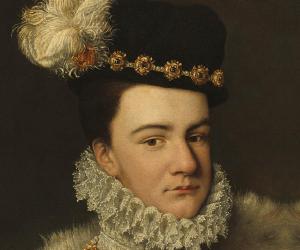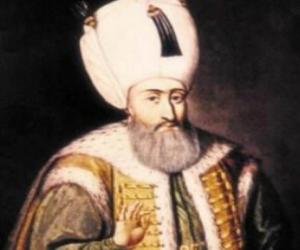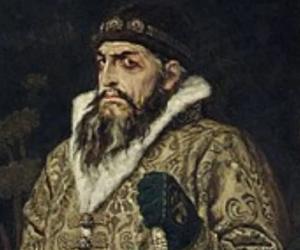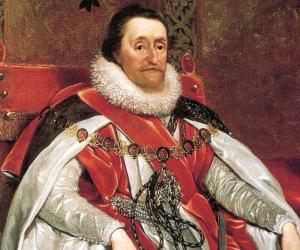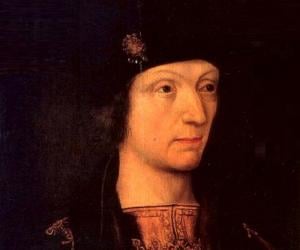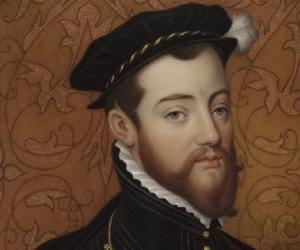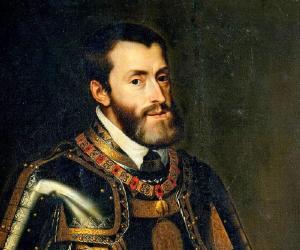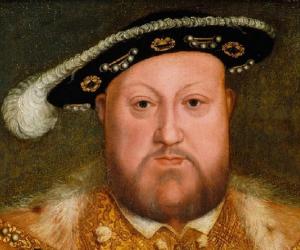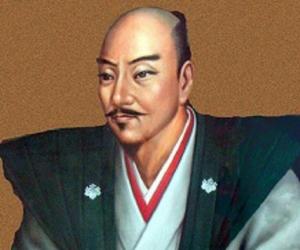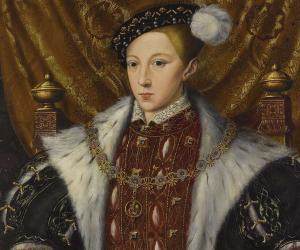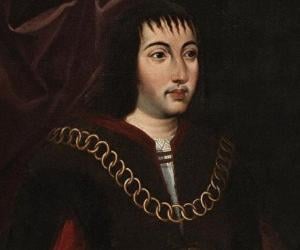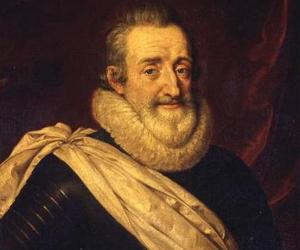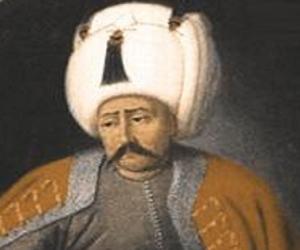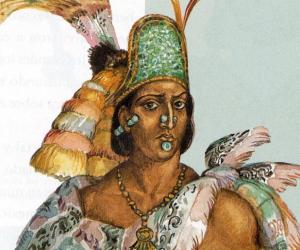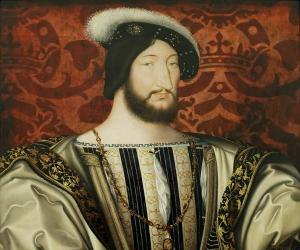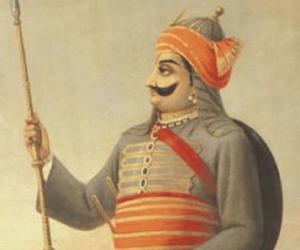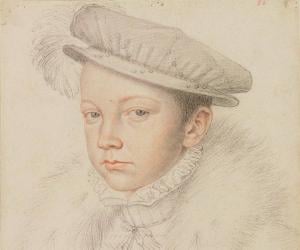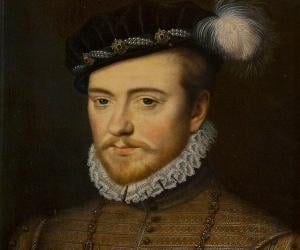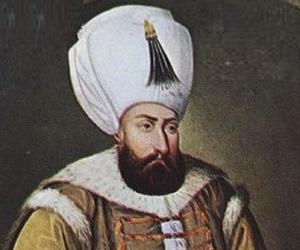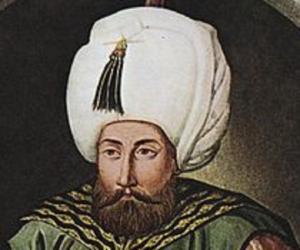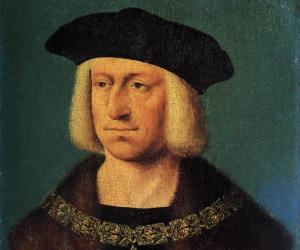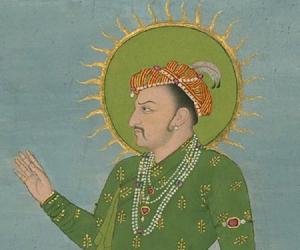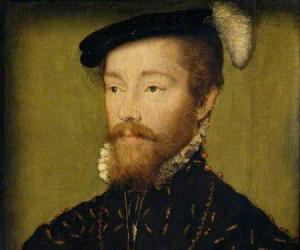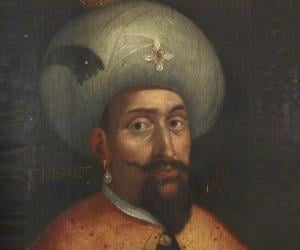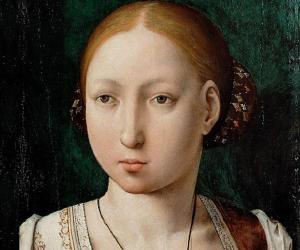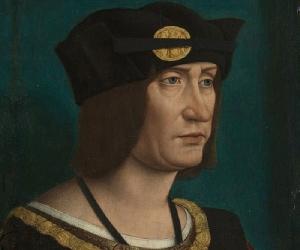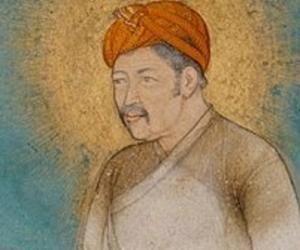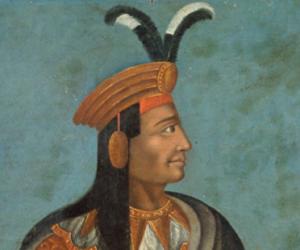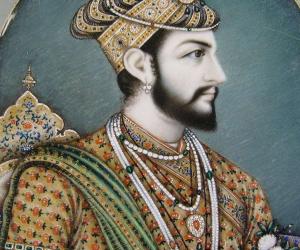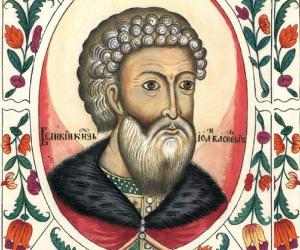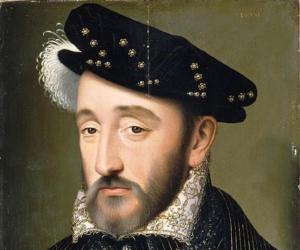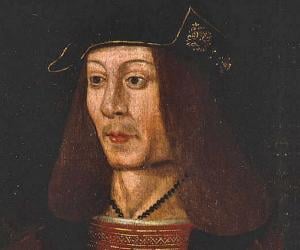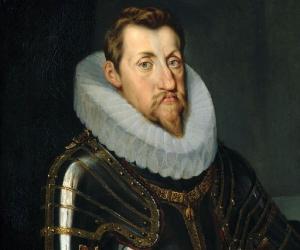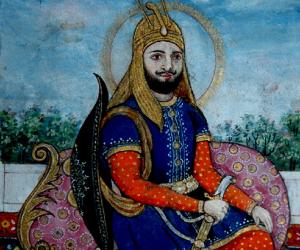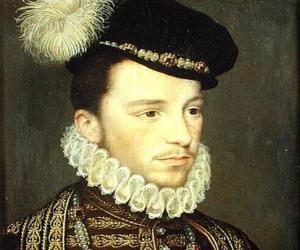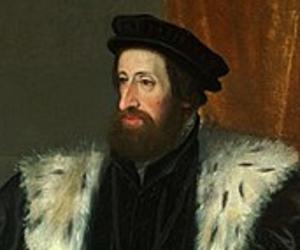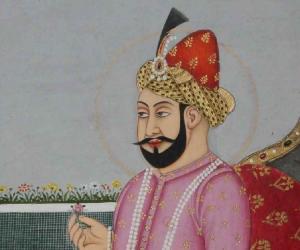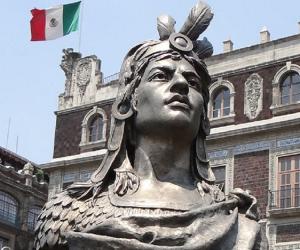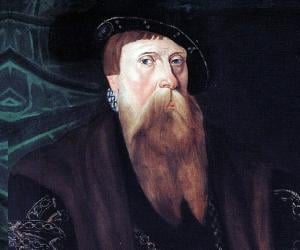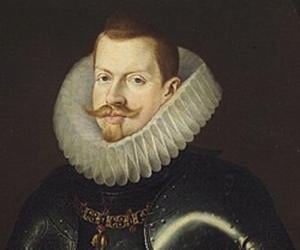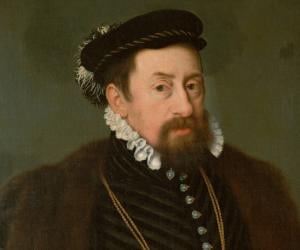King James I of England and Ireland was also the king of Scotland as James VI. Son of Mary, Queen of Scots, he believed in royal absolutism. He had major conflicts with the Parliament and its ever-growing powers, which eventually led to revolts against his successor, Charles I.
Henry VII of England played an important role in popularizing the House of Tudor by becoming the first monarch of the house; he ruled as the king of England from 1485 until his death in 1509. He is credited with several economic, diplomatic, and administrative initiatives.
Charles V served as the Holy Roman Emperor, King of Italy, and King of Germany from 1519 to 1556. From 1516 to 1556, he ruled as the King of Spain. His personal union of the American and European territories was the first collection of kingdoms that were described the empire on which the Sun never sets.
Henry VIII, the second monarch of the Tudor dynasty, ruled England from 1509 to 1547. He married six times, leading to differences with the Roman Catholic Church, which prohibited divorce, thus forming the Anglican Church. The "father of the Royal Navy," he was known for his tyranny and extravagance.
Edward VI of England served as the King of England and Ireland from 1547 until his death at the age of 15 in 1553. Edward VI, who took interest in religious matters, allowed Protestantism to be established in England during his reign. His reign also witnessed the introduction of written works that formed the basis for practices of the English Church.
Ferdinand II of Aragon reigned as the King of Aragon from 1479 until his death in 1516. He sponsored Christopher Columbus' first voyage and therefore is credited with playing a key role in the discovery of the New World. He has been depicted in several films, including Christopher Columbus: The Discovery, 1492: Conquest of Paradise, and Assassin's Creed.
Henry IV of France reigned as the King of France from 2 August 1589 until his death on 14 May 1610. Remembered for his concern about the welfare of the people of France, Henry worked to eliminate corruption, promote agriculture, encourage education, and regularize state finance. The character of Ferdinand in Shakespeare's Love's Labour's Lost was loosely based on Henry.
Selim I reigned as the ninth Sultan of the Ottoman Empire. Although his reign lasted only eight years, Selim I is credited for the vast expansion of the Ottoman Empire; his conquest of the entire Mamluk Sultanate of Egypt is widely regarded as his best achievement. A hardworking ruler, Selim was one of the most respected emperors of the Empire.
Francis I, son of Charles, Count of Angoulême, was the king of France from 1515 to 1547. He was an art connoisseur and invited Italian artist Leonardo da Vinci to his court. His contribution to the promotion of French language earned him the title Father and Restorer of Letters.
Becoming the King of France at the age 10, Charles IX presided over a kingdom which was torn apart by the Wars of Religion between Protestants and Catholics. The infamous massacre of Huguenot leaders in Paris, instigated by his mother Catherine, left a traumatic effect on the mind of the ruler who succumbed to tuberculosis at the age of 23.
Known as a generous Ottoman monarch, Selim II was the successor of the empire’s longest-reigning sultan, Suleiman I. His reign saw his navy decisively defeated by the Holy League in the Battle of Lepanto before the Ottomans regained control of Tunis from Spain. Selim, who was married to Nurbanu Sultan, was noted for helping his subjects during a severe famine.
Maximilian I was Holy Roman Emperor from 1508 until his death in 1519. The son of Frederick III, Holy Roman Emperor, and Eleanor of Portugal, he ruled jointly with his father for the last years of the latter’s reign. During his reign, he expanded the influence of the House of Habsburg and established the Habsburg dynasty in Spain.
Mehmed III reigned as the Sultan of the Ottoman Empire from 16 January 1595 until his death on 22 December 1603. He is best remembered for his role in the Long Turkish War, where he successfully led his army at the all-important Battle of Keresztes. Also remembered for his diplomacy, Mehmed III established communications with the court of Elizabeth I.
Akbar, the third Mughal emperor, played an important role in inculcating Persian culture into the Indian subcontinent. Akbar is considered one of the most important rulers of the Mughal Empire, an empire that seeped foreign ideas and culture into medieval India, the effects of which are still visible in modern-day India, especially in the northern parts of the country.
Atahualpa was the last Inca Emperor. He reigned for a short time between 1532 and 1533 before the Spanish conquest ended his reign. The Spanish conquistador Francisco Pizarro captured Atahualpa and killed him after a while. Even though many brave warriors led the Inca resistance against the invading Spaniards, they could not stop the empire from disintegrating.
Shah Jahan, emperor Jahangir’s son, ruled as the fifth Mughal emperor, from 1628 to 1658. He is known for commissioning the Taj Mahal for his wife Mumtaz Mahal, among other contributions to Mughal architecture. He was put under house arrest by his son, Aurangzeb, during his final years.
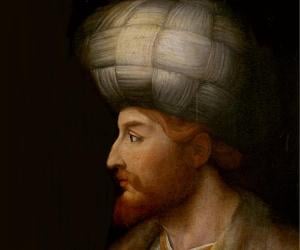
Ismail I was the originator of the Safavid dynasty and ruled as the Shahanshah of Iran from 1501 to 1524. His reign is considered one of the most vital in Iranian history and his empire is regarded as one of the greatest in the history of Iran and one of the most powerful empires of the world during its peak.
Ivan III of Russia was a Grand Prince of Moscow and Grand Prince of all Rus'. He initially served as the co-ruler and regent for his blind father, Vasily II, before officially occupying the throne. He vastly expanded his kingdom and laid the foundations of the Russian state. His reign—lasting 43 years—was one of the longests in Russian history.
James IV of Scotland reigned as the king of Scotland from 1488 until his death in 1513. Although his reign ended at the Battle of Flodden, where he was defeated, James is widely considered the most successful monarch of Scotland from the House of Stewart.
Ferdinand II was the Holy Roman Emperor from 1619 to1637. He was a member of the House of Habsburg and the son of Archduke Charles II of Inner Austria and Maria of Bavaria. A zealous Catholic, he wanted to restore the Catholic Church as the only religion in the empire, a move that earned him the ire of Protestant groups.
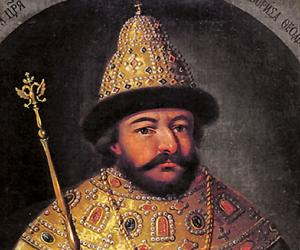
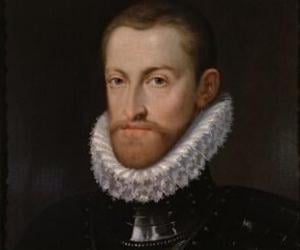
Rudolf II, Holy Roman Emperor reigned as the King of the Romans and as the King in Germany between 1576 and 1612. Best remembered as an intellectual aficionado of occult arts, Rudolf is often seen as the founding father of the Scientific Revolution. He devoted his time to astrology and alchemy in an attempt to find the Philosopher's Stone.
Henry III of France was the King of France from 1574 to 1589. He also served as the Grand Duke of Lithuania and King of Poland from 1573 to 1575. Henry was known for his alleged sexual relationships with men. Although certain reports have claimed that the allegations were false, he is sometimes depicted in popular culture as being effeminate.
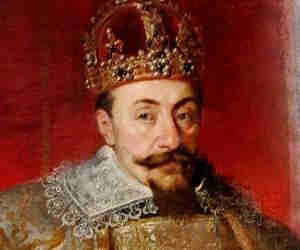
Sigismund III Vasa was the elder son of Swedish king John III Vasa. As the king of Poland and Sweden, he not only enjoyed prosperity but also tried to unite the two states, although he ended up creating conflicts between them. His lust for power also resulted in the Zebrzydowski Rebellion.
Humayun was the second emperor of the Mughal Empire, which ruled over South Asia for nearly two centuries. At the time of his demise, the empire spanned nearly one million square kilometers. The expansion of the empire under Humayun’s reign helped his son Akbar establish a substantial legacy of his own.
Cuauhtémoc was the Aztec ruler of Tenochtitlan who reigned from 1520 to 1521. The last Aztec Emperor, Cuauhtémoc is an important historical figure in present-day Mexico. His image has appeared on Mexican banknotes and coins. Over the years, he has been a popular subject of paintings and music in Mexico.
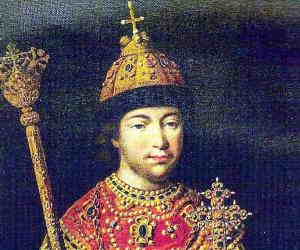
Gustav I of Sweden reigned as the king of Sweden from 1523 to 1560. Gustav was an energetic administrator who worked tirelessly to bring about a reformation in Sweden. He is credited with replacing medieval Sweden's elective monarchy with a hereditary monarchy, thus helping three of his sons become the rulers of Sweden at different points in history.
Philip III of Spain was the king of Spain from 1598 to 1621. He also reigned over Portugal, Naples, Sicily, and Sardinia as Philip II. He was the son of Philip II of Spain and Anna of Austria. He was believed to be a weak man, who relied too much on his corrupt chief minister, the Duke of Lerma.
Maximilian II was the Holy Roman Emperor from 1564 until his death in 1576. A member of the Austrian House of Habsburg, he was the eldest son of the Habsburg archduke Ferdinand I and Anne of Bohemia and Hungary. He was the nephew of Emperor Charles V. As the king, he adopted a policy of religious neutrality.
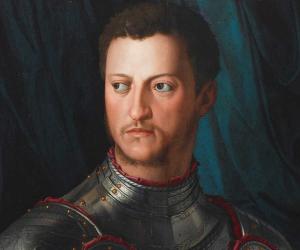
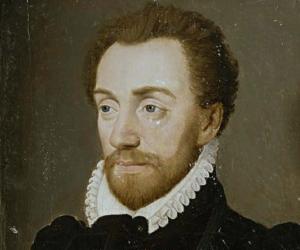
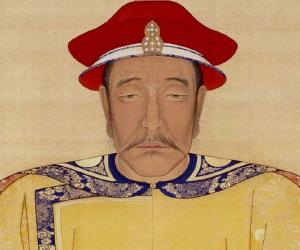
Nurhaci was a Jurchen chieftain who reigned as the Khan of Later Jin for 10 years. He is credited with uniting and reorganizing several Jurchen tribes. His attack and conquest of Ming dynasty laid the foundation for the formation of the Qing dynasty, which was founded by his descendants in 1636. His life inspired the 2005 TV series, Taizu Mishi.
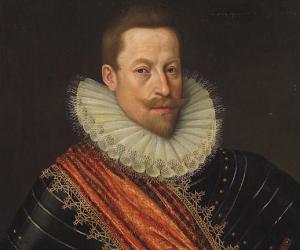
Apart from serving as the Holy Roman Emperor, Matthias, Holy Roman Emperor also served as the Archduke of Austria, King of Croatia and Hungary, and King of Bohemia between 1612 and 1619. His reign resulted in the Bohemian Revolt, which was the initial theatre of the famous Thirty Years War.
